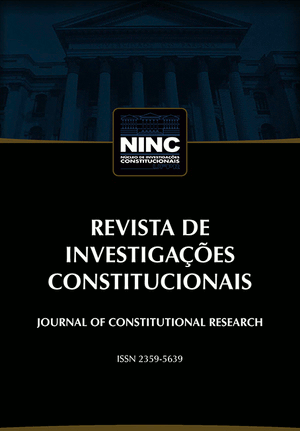Abstract
The article discusses the conditions for overcoming the authoritarian legacy of the 1987 constitutional process, established after the Brazilian political transition. The objective is to identify how mechanisms of continuity of this legacy succeeded in coming through unscathed, even with the advent of the new constitutional order. The method adopted is that of historical sociology, through the use of the strategy of identifying historical regularities from the comparison between defeated and victorious political projects. The hypothesis constructed is based on the assumption that every constitutional process is a project for the future and that, by choosing such a strategy for the transitional process, the military government and its supporters were guaranteeing the impunity of the regime’s atrocities and thereby the permanence of an authoritarian modus operandi (social and institutional) that accompanies us historically.
Keywords:
constitutional process of 1987; political transition; authoritarian legacy; Latin American constitutionalism; historical sociology
